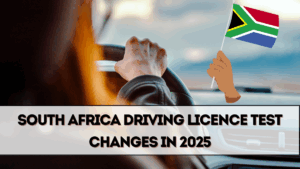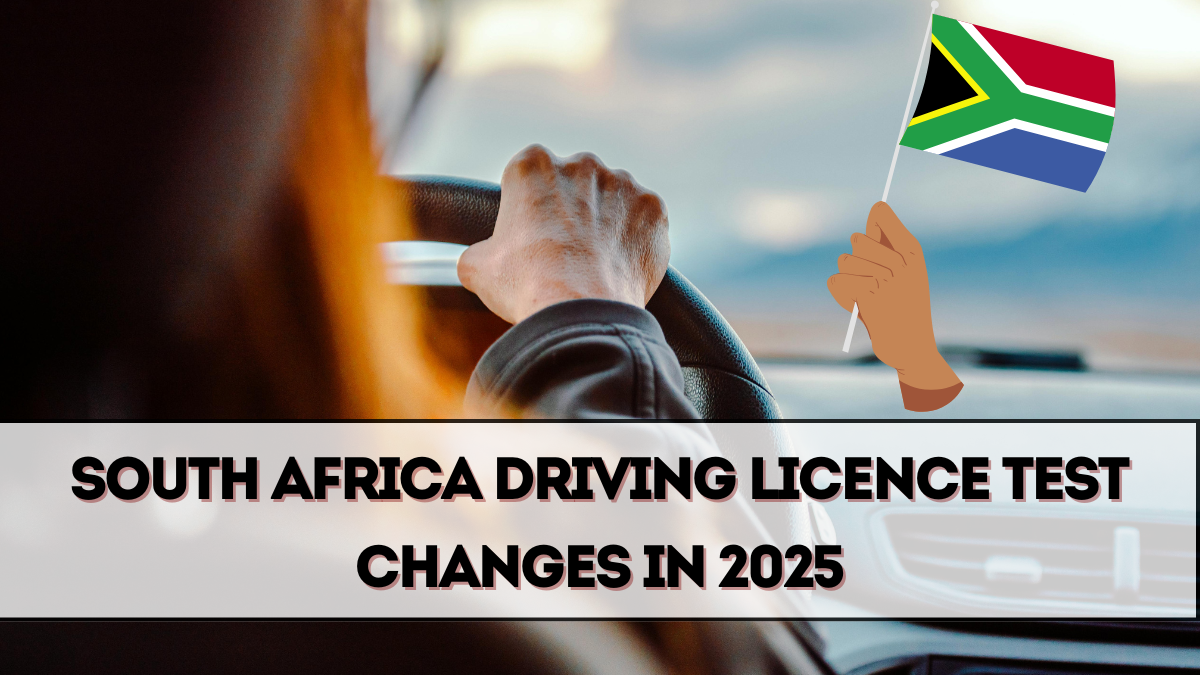Driving in South Africa is about to undergo a major shift with the introduction of new driving licence test rules in 2025. The government has announced updates under the SA Driving Test Changes 2025 initiative, aiming to enhance road safety, improve driver preparedness, and align South Africa with global best practices. These updates have been rolled out as part of a wider licence updates program, ensuring that both new and experienced drivers meet higher standards of road discipline.

Why Changes Were Needed
Road safety remains a significant challenge in South Africa. Thousands of accidents occur annually due to poor driving skills, negligence, and lack of awareness of traffic rules. The previous testing framework was seen as outdated and insufficient to prepare drivers for modern traffic conditions. The SA Driving Test Changes 2025 address these issues by:
-
Strengthening the testing process.
-
Introducing new assessment criteria.
-
Incorporating technology for greater transparency.
-
Ensuring drivers are equipped for both urban and rural roads.
The aim is to reduce accidents and create safer roads for all citizens.
Key Driving Test Updates in 2025
The new rules introduce several significant changes to the testing structure:
-
Digital Theory Test
-
Conducted online or at designated centers.
-
Includes questions on traffic rules, defensive driving, and road safety scenarios.
-
-
Hazard Perception Test
-
Candidates must identify and respond to potential road hazards.
-
Designed to test real-life driving awareness.
-
-
Practical Driving Exam Enhancements
-
Longer driving routes covering highways, urban traffic, and rural roads.
-
Stricter evaluation of lane discipline, mirror usage, and signaling.
-
-
Eco-Driving Component
-
Assessment of fuel-efficient and environmentally responsible driving practices.
-
-
Use of Dashcams and GPS Tracking
-
Practical exams recorded for transparency and to reduce examiner bias.
-
-
Revised Passing Criteria
-
Higher minimum score required.
-
Fewer allowances for critical mistakes.
-
These updates reflect international best practices and ensure South African drivers meet global safety standards.
Impact on Learners and Driving Schools
The new driving test rules will significantly affect both learners and training institutions:
-
Learners: Will require more practice and in-depth knowledge of traffic laws.
-
Driving Schools: Must upgrade training methods, introduce hazard perception lessons, and prepare students for eco-driving techniques.
-
Cost of Training: Likely to increase slightly due to advanced modules and longer practice sessions.
However, the outcome will be better-trained drivers with higher confidence and skills.
Government’s Road Safety Vision
The licence updates are part of South Africa’s larger road safety plan for 2025 and beyond. Key objectives include:
-
Reducing road accidents by at least 20% over the next five years.
-
Introducing technology to monitor driving tests and cut corruption.
-
Ensuring consistency in testing standards across provinces.
-
Promoting eco-friendly driving habits to reduce emissions.
This aligns with South Africa’s commitment to both sustainable development and public safety.
Challenges in Implementation
While the new system is promising, challenges remain:
-
Infrastructure Gaps: Rural testing centers may lack proper technology.
-
Awareness Issues: Learners need guidance on the new test structure.
-
Resistance from Driving Schools: Smaller schools may struggle with costlier upgrades.
-
Accessibility Concerns: Internet-based theory tests may disadvantage learners in remote areas.
The government plans to address these issues through subsidies, awareness campaigns, and training support.
Benefits of the New Test System
The SA Driving Test Changes 2025 will provide multiple benefits:
-
Better Prepared Drivers: More skilled and confident behind the wheel.
-
Improved Safety: Lower accident rates due to stricter standards.
-
Transparency: Recorded exams ensure fairness in assessment.
-
Environmental Responsibility: Eco-driving reduces fuel consumption.
-
Global Alignment: South Africa joins countries with advanced driver testing systems.
This represents a long-term investment in safer roads and responsible citizens.
Future Outlook for Driving Tests in South Africa
Looking ahead, the driving licence test system is likely to evolve further:
-
AI-Powered Assessments: Automated scoring for theory and practical tests.
-
Virtual Simulators: Training learners in controlled digital environments.
-
Stricter Renewal Policies: Regular re-tests for professional drivers.
-
Integration with Insurance: Linking driving test performance with insurance premiums.
-
Eco-Certification: Special certificates for eco-friendly driving practices.
These innovations will continue to raise the bar for road safety in the country.
FAQs
What are the major changes in South Africa’s driving test in 2025?
New updates include digital theory tests, hazard perception exams, longer practical routes, eco-driving evaluation, and dashcam monitoring.
Why were these changes introduced?
To reduce accidents, improve road safety, and align South Africa with international driving standards.
How will learners be affected by the new system?
Learners will need more practice, deeper knowledge of traffic rules, and training in eco-driving techniques.
Will driving schools need to upgrade their training?
Yes, schools must introduce modern teaching methods, hazard awareness modules, and use updated technology.
Click here to know more.
